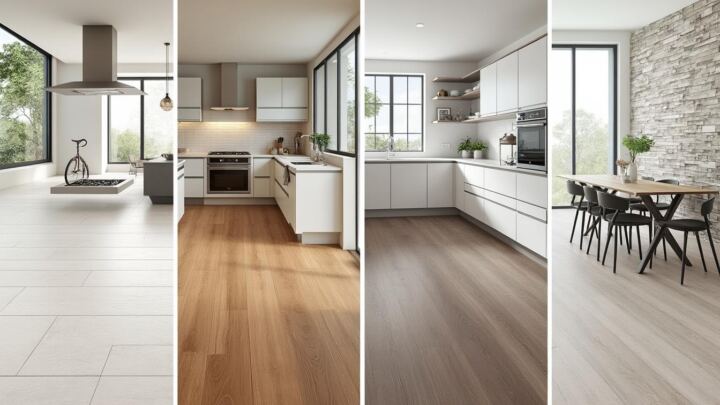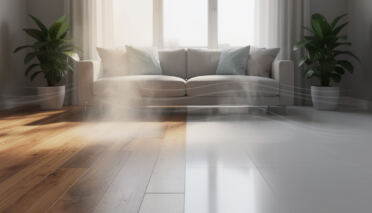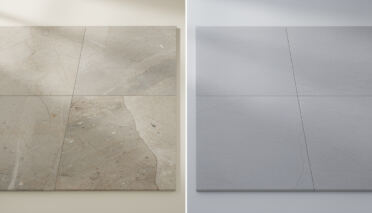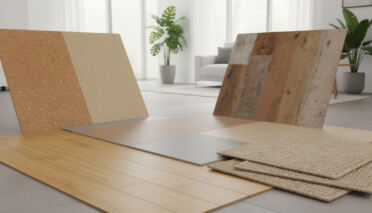When it comes to remodeling your kitchen, choosing the right flooring can feel like a daunting task. With a myriad of options available, each boasting its unique advantages and disadvantages, it’s essential to identify what works best for your space. The type of flooring you select will not only affect the aesthetic appeal of your kitchen but also its functionality and durability in this highly trafficked area. With considerations ranging from cost to maintenance, here’s a dive into the key factors that will guide your decision-making process.
Brief
- Durability: The kitchen demands flooring that can withstand frequent spills and heavy foot traffic.
- Water-resistance: Given the nature of kitchen activities, select materials that can handle moisture without damage.
- Ease of Maintenance: Choose a flooring type that is easy to clean and maintain over time.
- Design Compatibility: Your kitchen floor should complement the rest of your home while providing a stylish appearance.
- Budget: Consider upfront costs as well as long-term value.
Choosing the Right Flooring: What to Consider
Your kitchen isn’t just a cooking space; it’s typically the heart of your home, often bustling with family and friends. Thus, your choice of flooring should prioritize both form and function. Here are some critical factors to consider while shopping for the best kitchen flooring:
Durability Matters
The kitchen sees a lot of action, from the fast-paced preparation of meals to entertaining guests. Therefore, the floor must be able to withstand the rigors of daily life. Look for materials that resist staining, scratching, and denting. For example, luxury vinyl planks (LVP) and porcelain tiles excel in durability. These materials can tolerate heavy foot traffic and can recover nicely from the occasional mishap involving dropped kitchenware.
Water-Resistance is Key
Leakages, spills, and splashes are common in the kitchen. Choosing water-resistant flooring is crucial to prevent catastrophic issues like warping or mold growth. Vinyl flooring, particularly sheet vinyl, offers wall-to-wall waterproof coverage, making it an ideal solution. Likewise, porcelain tiles are impervious to moisture, making them excellent for kitchens.
Maintenance Made Easy
In a busy kitchen, messes are inevitable. Thus, opt for flooring that can be cleaned with minimal effort. Flooring options like laminate, LVP, and some tiles simply require regular sweeping and the occasional mop-down. For instance, LVP is especially easy to maintain—just a damp mop will usually do the trick.
Design-Aware Choices
Your kitchen should look as good as it functions. Luckily, modern flooring options come in various designs and colors, letting you achieve an appealing kitchen aesthetic without compromising on functionality. From the natural appearance of hardwood to the sleek look of tiles and vinyl, there’s something to match every style. Companies like Shaw Floors and Mohawk Industries offer a wide selection that brings both style and substance.
Cost Considerations
Keep in mind that certain flooring options might come with a hefty price tag, which affects your overall budget for the kitchen remodel. The average kitchen remodel goes for $14,500 to $41,500, and flooring represents a significant chunk of this expense. Depending on quality, vinyl flooring might cost between $1 to $2 per square foot, whereas high-end materials like stone or premium wood could skyrocket to $45 per square foot.

Top Kitchen Flooring Options
Now that we’ve discussed the various factors to consider, let’s take a closer look at some popular and effective flooring options, each with its own set of benefits:
1. Sheet Vinyl
Sheet vinyl has been around for a while and continues to be a go-to option for kitchens. Its large seamless sheets provide exceptional waterproofing, which safeguards against spills. This flooring is soft underfoot and can be a pleasant contrast to hard tile surfaces, especially in winter months.
- Pros: Waterproof, comfortable, affordable, and available in various designs.
- Cons: Can get scratched under heavy appliances.
For an economical and robust choice, TrafficMaster Vinyl Sheet Flooring is a favorite at around $1 per square foot.
2. Luxury Vinyl Plank (LVP)
Rapidly gaining popularity, luxury vinyl planks offer a sophisticated look of hardwood with waterproofing prowess. They’re also DIY-friendly due to their snap-together installation. With a range of $2 to $10 per square foot, they offer affordability alongside aesthetics.
- Pros: Tough, waterproof, appealing; resembles hardwood.
- Cons: Scratching may occur under heavy items.
LifeProof is one recommended option, boasting antimicrobial features and easy installation.
3. Porcelain Tile
If you seek maximum durability, porcelain tile might be your best bet. With its dense body and resistance to scratching, it can handle high traffic with ease. However, proper installation is a must, as heavy tiles can have specific layout commands.
- Pros: Extremely tough, waterproof, versatile in design, stain-resistant.
- Cons: Grout requires sealing every few years to avoid stains.
Corso Italia’s porcelain tile is a solid choice, worth its cost for the durability it provides.

4. Stone Tile
For those looking for a natural touch, stone tile is stunning but demands careful consideration. It tends to be non-slip and provides a uniquely elegant appearance that complements any kitchen décor. However, it is heavier and may require more substantial support for upper stories.
- Pros: Distinctive natural aesthetic, excellent durability, nonslip options available.
- Cons: Can be costly and requires sealing to prevent stains.
Among the various types such as travertine, slate, and granite, slate offers a great balance between beauty and practicality.
5. Cork Flooring
A newcomer to the market, cork flooring offers a warm feel underfoot and noise absorption, making it ideal for family homes. It’s also sustainable and budget-friendly, typically costing between $3 to $9 per square foot.
- Pros: Comfortable, reduces noise, and can be refinished.
- Cons: Can dent under heavy appliances; not perfect for every environment.
The eco FOREST Savoy Cork Plank represents a fantastic option, especially for those wanting a cozy kitchen atmosphere.
| Type | Durability | Water-Resistant | Cost per Square Foot | Maintenance Level |
|---|---|---|---|---|
| Sheet Vinyl | Moderate | Yes | $1-$2 | Low |
| Luxury Vinyl Plank | High | Yes | $2-$10 | Low |
| Porcelain Tile | Very High | Yes | $0.50-$15 | Moderate |
| Stone Tile | High | Yes | $5-$45 | High |
| Cork Flooring | Moderate | No | $3-$9 | Low |
What flooring type is the most durable for kitchens?
Porcelain tile is among the most durable kitchen flooring options available, resistant to scratches and stains.
Is luxury vinyl plank flooring a good choice?
Yes, LVP is waterproof, easy to maintain, and offers the look of hardwood, making it an excellent option for kitchens.
Can I install kitchen flooring myself?
Many flooring types like luxury vinyl planks and cork offer DIY-friendly installation methods.
How often should I clean my kitchen floor?
Regular sweeping and mopping weekly is recommended to maintain cleanliness, while deeper cleanings can be done monthly.



